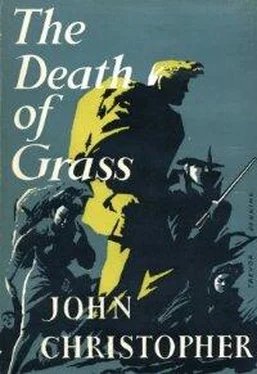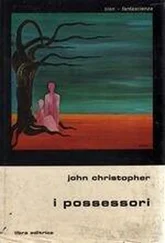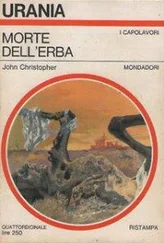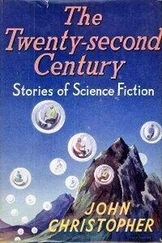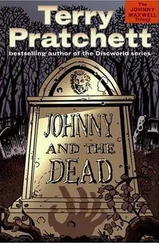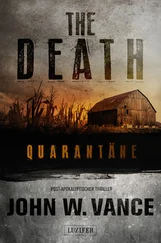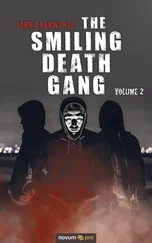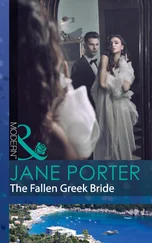He knew Masham as a small market town on the banks of the Ure. The road curved sharply just beyond the river, and he slowed down for the bend.
The block had been well sited—far enough round the bend to be invisible from the other side, but near enough to prevent a car getting up any speed again. The road was not wide enough to permit a turn. He had to brake to stop, and before he could put the car into reverse he found a rifle pointing in at his side window. A stocky man in tweeds was holding it. He said to John:
“All right, then. Come on out.”
John said: “What’s the idea?”
The man stepped back as Pirrie’s Ford swept round in its turn, but he kept the rifle steady on the Vauxhall. There were others, John saw, behind him. They covered the Ford and finally the Citroen when it, too, came to a halt in front of the block.
The man in tweeds said: “What’s this—a convoy? Any more of you?”
He had a jovial Yorkshire voice; the inflection did not seem at all threatening.
John pushed the door open. “We’re travelling west,” he said, “across the moors. My brother’s a farmer in Westmorland. We’re heading for his place.”
“Where are you heading from, mister?” another voice asked.
“ London.”
“You got out quick, did you?” The man laughed. “Not a very ’ealthy place just now, London, I don’t reckon.”
Roger and Pirrie had both alighted—John was relieved to see that they had left their arms in the cars. Roger pointed to the road-block.
“What’s the idea of the tank trap?” he asked. “Getting ready for an invasion?”
The man in tweeds said: “That’s clever.” His voice had a note of approval. “You’ve got it in one. When they come tearing up from the West Riding, the way you’ve done, they’re not going to find it so easy to pillage this little town.”
“I get your point,” Roger said.
There was something artificial about the situation. John was able to see more clearly now; there were more than a dozen men in the road, watching them.
He said: “We might as well get things straight. Do I take it you want us to back-track and find a road round the town? It’s a nuisance, but I see your point.”
Another of the men laughed. “Not yet you don’t, mister!”
John made no reply. For a moment he weighed the possibilities of their getting back into the cars and fighting it out But even if they were to succeed in getting back, the women and children would be in the line of fire. He waited.
It was fairly clear that the man in tweeds was the leader. One of the small Napoleons the new chaos would throw up; it was their bad luck that Masham had thrown him up so promptly. It had not been unreasonable to hope for another twelve hours’ grace.
“You see,” the man in tweeds said, “you’ve got to look at it from our point of view. If we didn’t protect ourselves, a place like this would be buried in the first rush. I’m telling you so you will understand we’re not doing anything that’s not sensible and necessary. You see, as well as being a target, you might say we’re a honeypot All the flies—trying to get away from the famine and the atom bombs—they’ll all be travelling along the main roads. We catch them, and then we live on them—that’s the idea.”
“Bit early for cannibalism,” Roger commented. “Or is it a habit to eat human flesh in these parts?”
The man in tweeds laughed. “Glad to see you’ve got a sense of humour. All’s not lost while we can find something to laugh at, eh? It’s not their flesh we want—not yet, anyway. But most of ’em will be carrying something, if it’s only half a bar of chocolate. You might say this is a toll-gate {107} 107 toll-gate: bar or gate across a road where taxes had to be paid by road-users
combined with a customs house {108} 108 customs house: where customs duties are collected at a seaport
. We inspect the luggage, and take what we want.”
John said sharply: “Do you let us through after that?”
“Well, not through, like. But round, anyway.” His eyes—small and intent in a square well-fleshed face—fastened on John’s. “You can see what it looks like from our point of view, can’t you?”
“I should say it looks like theft,” John said, “from any point of view.”
“Ay,” the man said, “maybe as it does. If you’ve travelled all the way up here from London with nought worse than theft to your names, you’ve been luckier than the next lot will be. All right, mister. Ask the women to bring the kids out We’ll do the searching. Come on, now. Soonest out, soonest ended.”
John glanced at the other two; he read anger in Roger’s face, but acquiescence. Pirrie looked his usual polite and blank self.
“O.K.,” John said. “Ann, you will have to wake Mary, I’m afraid. Bring her out for a moment.”
They huddled together while some of the men began ransacking the insides of the cars and the boots. They were not long in unearthing the weapons. A little man with a stubble of beard held up John’s automatic rifle with a cry.
The man in tweeds said: “Guns, eh? That’s a better haul than we expected for our first.”
John said: “There are revolvers as well. I hope you will leave us those.”
“Have some sense,” the man said. “We’re the ones who’ve got a town to defend.” He called to the searching men. “Stack all the arms over here.”
“Just what do you propose to take off us?” John asked.
“That’s easy enough. The guns, for a start. Apart from that, food, as I said. And petrol, of course.”
“Why petrol?”
“Because we may need it, if only for our internal lines of communication.” He grinned. “Sounds very military, doesn’t it? Bit like the old days, in some ways. But it’s on our own doorsteps now.”
John said: “We’ve got another eighty or ninety miles to do. The Ford can do forty to the gallon, the other two around thirty. All the tanks are pretty full. Will you leave us nine gallons between us?”
The man in tweeds said nothing. He grinned.
John looked at him. “We’ll ditch one of the big cars. Will you leave us six gallons?”
“Six gallons,” the man in tweeds said, “or one revolver—the sort of thing that might make the difference between our holding this town and seeing it go up in flames. Mister, we’re not leaving you anything that we can possibly make good use of.”
“One car,” John said, “and three gallons. So you don’t have three women and four children on your consciences.”
“Nay,” the man said, “it’s all very well talking about consciences, but we’ve got our own women and kids to think about.”
Roger and Pirrie were standing by him. Roger said:
“They’ll take your town, and they’ll burn it I hope you live just long enough to see it.”
The man stared at him. “You don’t want to start spoiling things, mister. We’ve been treating you fair enough, but we could turn nasty if we wanted to.”
Roger was on the verge of saying something else. John said:
“All right That’s enough, Rodge.” To the man in tweeds, he went on: “We’ll make you a present of the cars. Can we take our families through the town towards Wensley? And do you think we could have a couple of old perambulators you’ve finished with?”
“I’m glad to see you’re more polite than your friend, but it’s no—to both. No one’s coming into this town. We’ve got our roads to guard, and the men who aren’t guarding them have got work to do and sleep to get. We can’t spare anyone to watch you, and it’s damn certain we’re not letting you go through the town unwatched.”
John looked at Roger again, and checked him. Pirrie spoke:
Читать дальше
